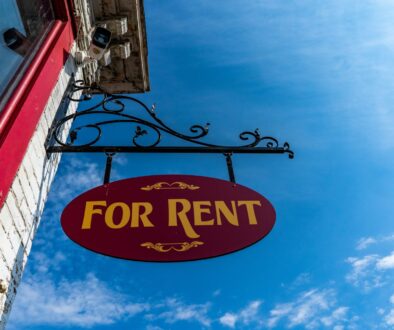Minimum energy efficiency standards for non-domestic buildings
From 01.04.18, Minimum Energy Efficiency Standards Regulations will impose a financial penalty regime on Landlords who let out non-domestic premises that do not have an Energy Efficiency Rating of level “E” or above.
(The rating can be found in the premises’ Energy Performance Certificate (“EPC”), and it is possible that, over time, the minimum rating required will rise).
The Regulations will therefore require Landlords to consider how to improve the rating of the Premises if it currently falls below the required standard.
The Regulations will be implemented on a “staggered” basis. They will, unless an exemption applies and has been registered (see further below), apply to :-
- new lettings from and including 01.04.18 (including Lease renewals) and
- existing lettings from 01.04.23.
The Regulations will apply to any one who lets or proposes to let a non-domestic property (including a Tenant who proposes to sublet).
A number of exemptions will apply. Some of those most likely to be relevant in practice are (in short) :-
- Properties that do not need an EPC under the EPC or Building Regulations.
- If the cost of the energy efficiency measures which the Landlord will have to take to bring the EPC rating up to the required level is more than the expected value of savings on energy bills that the measures are expected to achieve over a period of 7 years, starting with the date of completion of those measures.
- If the person letting the Property cannot obtain any Consents necessary to carry out the required measures from third parties.
If that person can show that he or she has (unsuccessfully) made all reasonable efforts to obtain the necessary Consents, he or she will (provided that the exemption has been registered) be able to continue to let the property for a period of 5 years.
- If the person letting the property obtains a report from an Independent Surveyor, advising that the installation of the energy saving measures would devalue the property by 5% or more.
(This exemption is again limited to a 5 year period).
However, these exemptions do not pass to a new owner/Landlord on a sale or transfer of the Property.
If, however, a Property is sold/transferred to an owner occupier, the Regulations will then cease to apply.
The Department of Energy and Climate Change has already created a Register of Exemptions (details of which will be made public) and it is possible to register exemptions now.
Failure to achieve the relevant minimum standards without a permitted reason/exemption may result in significant financial penalties for those letting properties.
Local Authority Weights and Measures Departments will enforce the Regulations. They will have a number of penalty options available.
If the Property has been let for less than three months at the time a penalty notice is served, the penalty can be up to the greater of £5,000 or 10% of the property’s rateable value, subject to a maximum of £50,000.
If the breach continues for three months or more, the maximum penalties increase to the greater of £10,000 and 20% of rateable value, subject to a maximum of £150,000.
Penalty notices can be served up to 18 months after the suspected breach of the Regulations.
(The Authorities will also be able to impose fines if misleading or incorrect information is included on the Exemptions Register).
This will present a number of challenges for those letting property and their advisers. Particular points which may need to be addressed are :-
- Landlords may wish to consider what steps they should be taking with a view to improving energy efficiency in advance of the introduction of the Regulations. Failure to do so may mean that the Property cannot be let in the future, with a resulting reduction in its investment value.
Landlords may wish to carry out works so as to achieve the minimum “E” rating or, on the basis that it has been suggested that the minimum rating will rise to a “D” rating in the future, a higher rating.
- Lenders may impose conditions in Finance Agreements, providing for funding to be withdrawn if a Property does not meet the minimum standard. Alternatively, Lenders may choose to impose retentions which can only be released when works necessary to bring the Property up to the required rating level have been completed.
- Landlords and Tenants will have to address whether works required to meet the minimum standards fall within their respective obligations under Letting Agreements.
In new lettings, Landlords may feel it necessary to require the Tenant to carry out works necessary to bring the Property up to the required standard as part of the Tenant’s repairing obligations.
- Tenants paying service charges may face issues about whether the cost of necessary works can properly be recovered by means of a service charge.
- Most Leases will contain a provision which (in one way or another) requires the Tenant to comply with statutory obligations “relating to the use and occupation of the Property”.
It is not yet clear whether a provision of that type will oblige a Tenant to carry out works which are required by the Regulations. The parties to a Lease may wish to introduce provisions to clarify this.
- Leases often allow a Tenant the (limited) ability to make alterations or additions, perhaps only with the Landlord’s consent.
The Landlord may wish to include provisions which prohibit the Tenant from carrying out works which worsen the property’s EPC rating.
The Landlord may also wish to reserve the right to carry out energy efficiency works during the term of the Lease.
- The Regulations are likely to have an impact on rent review provisions.
A Tenant might argue that, if the Property has not yet achieved the minimum rating, it cannot be let and, therefore, no rent should be payable.
The Landlord might counter that point with an argument that the “hypothetical” Landlord would then have to carry out the work at his cost, and so the rent which will then be achievable will have to take account of the cost of the works.
It is likely that rent review provisions will include an assumption that the Landlord has carried out any works which are required by the Regulations before the “hypothetical” Lease, by reference to which the rent is set, can be granted.
Timely, effective and practical advice will be essential for both Landlords and Tenants. Bowcock Cuerden LLP can provide that advice. Please contact us if we can be of any help to you.




